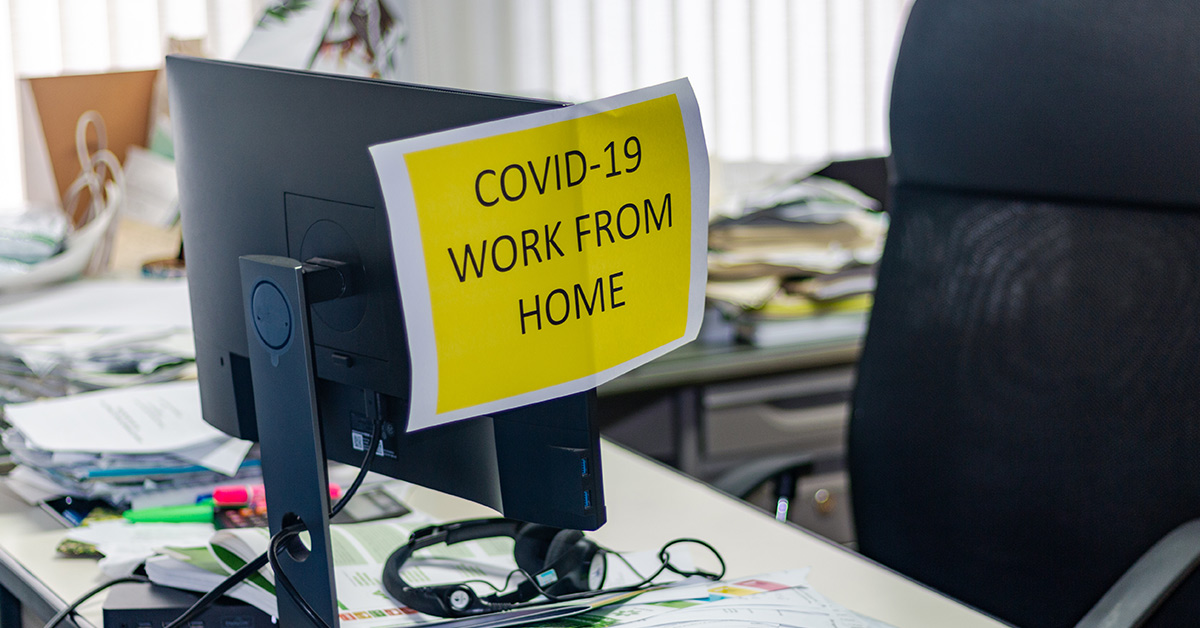Office assets have had a rough ride during the COVID-19 pandemic. Normally, commercial mortgage brokers and lenders could expect a temporary loss in office values, as well as fewer leasing, sales and origination activities, but this would be followed by a full recovery. This is what happened after the Great Recession ended in 2009.
The coronavirus health crisis is different, however. In past recessions, companies laid off office employees and the demand for office space fell, only to recover when the good times returned. In this pandemic-induced downturn, however, some companies not only laid off employees but also sent their entire retained workforce home. And unlike past downturns, it is not yet clear whether these employees will come back to a central office.
The pandemic has shown many companies that their employees can work remotely. So, if the company can keep their operations going with a virtually empty central office, why wouldn’t a CEO want to permanently reduce their office space to save money?
Recent leasing data suggests that executives are evaluating their post-pandemic office needs as the crisis plays out. Year over year, gross leasing activity for U.S. offices was down 63% in the second quarter and down 55% in the third quarter of this year, JLL reported. Importantly, the majority of leases in the first half of 2020 were renewals by companies opting to stay in their current locations. New leases, as a percentage of overall leases, were down significantly in major cities like Washington, D.C., indicating that companies are in defensive mode and evaluating their needs.
The experts, however, say it is wrong to write off the office. “This whole mindset that the office is dead and everybody’s going to work from home, it’s nonsense,” says Jeff Eckert, president of U.S. agency leasing at JLL.
Eckert says that companies may change how they use an office. Layouts will likely become less dense with fewer people packed into cubicles. Some employees will work from home, maybe coming into the office three days a week rather than five. Some companies may open offices in suburbs, becoming less reliant on mass transit while maintaining a smaller, central office in the downtown area. All of this could occur once the pandemic passes, or it may not happen at all. Eckert believes it’s too early to predict the long-term fallout. But, he says, company executives definitely won’t abandon the office.
“The office, at the end of the day, has long provided a place for concentrated work and, increasingly, as a place for collaboration, connection of people, innovation and social interaction,” Eckert says. “I believe that the desire for those key attributes has not diminished.”
This whole mindset that the office is dead and everybody’s going to work from home, it’s nonsense.
-Jeff Eckert, President of U.S. agency leasing, JLL
Roy Abernathy, an expert on workforce strategy in Newmark Knight Frank’s global corporate services consulting division, says that more people may spend more time working from home after the health crisis subsides. Their companies, however, won’t necessarily require less office space.
“Where we see the demand reducing is the demand for individual space,” Abernathy says. “Individual work is going to be variable, and get done in and out of the office. The demand is going to reduce for that type of space but, in many cases, the demand for collaborative or group space may increase.”
Abernathy says that the pandemic may finally force industries to modernize outdated office designs and fit the true needs of workers. In many of today’s offices, for example, employees are competing for meeting times in the few available conference rooms and communal spaces.
“We still have infrastructure and designs that date back to the 1920s,” Abernathy says. “It was really hard to even share across a desk, so we would [want to] take that work to a small conference room. You’re going to see a shift in the patterns of work. And because of that, you’re going to see a shift in the need for resources. So, less individual workstations, less individual offices.”
A potential long-term drop in office-space demand is a concern to lenders. Greg LaPlaunt, manager of commercial products at valuation company Clear Capital, says that lenders are taking extra care with appraisal and valuation documents to hedge against the risks. He says that certain industries may, in fact, require less space in the post-pandemic market or seek to move away from highly dense urban cores.
LaPlaunt says, however, that not all industries have the same needs and that many companies will react differently. A giant tech firm, for example, may be much more inclined to let employees work from home than, say, a bank or engineering firm. “What works for Microsoft may not work for a small and midsized company,” LaPlaunt says. “I think traditional office is here to stay. It allows for collaboration, that human interaction. We are social creatures by nature. And a lot of companies, even now in the depths of the pandemic, see the value of being together in the office.” ●






